2019 Milstein Young Investigator Award Winners:
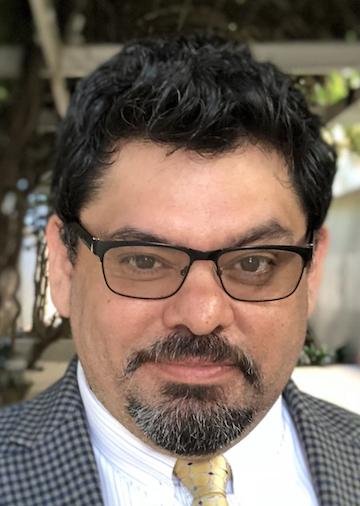 Juan Luis Mendoza, Assistant Professor, The University of Chicago, Chicago, USA
Juan Luis Mendoza, Assistant Professor, The University of Chicago, Chicago, USA
Dr. Mendoza is an Assistant Professor of Molecular Engineering in the Pritzker School of Molecular Engineering and Department of Biochemistry and Molecular Biology, University of Chicago. The Mendoza Group is highly multidisciplinary utilizing expertise in structural and computational biology, cell signaling, and protein engineering to study human disease and drive the discovery of novel therapeutics. One focus is on cell signaling in relation to the immune system and understanding how ligand-cell receptor driven responses can be used to treat diseases such as viral infections, cancer, or autoimmunity. A second focus of the Mendoza laboratory is building computational and engineering tools to accelerate the structural determination of ligand-receptor complexes and design of protein therapeutics as exemplified by his work on the IFN lambda (Immunity, 2017) and IFN gamma systems (Nature, 2019).
Oral Presentation: Sunday 20 October 2019 | 18:35 – 18:45, in the Opening Session in the Festsaal – STRUCTURE OF THE INTERFERON GAMMA RECEPTOR COMPLEX REVEALS A MECHANISM FOR DECOUPLING PLEIOTROPY
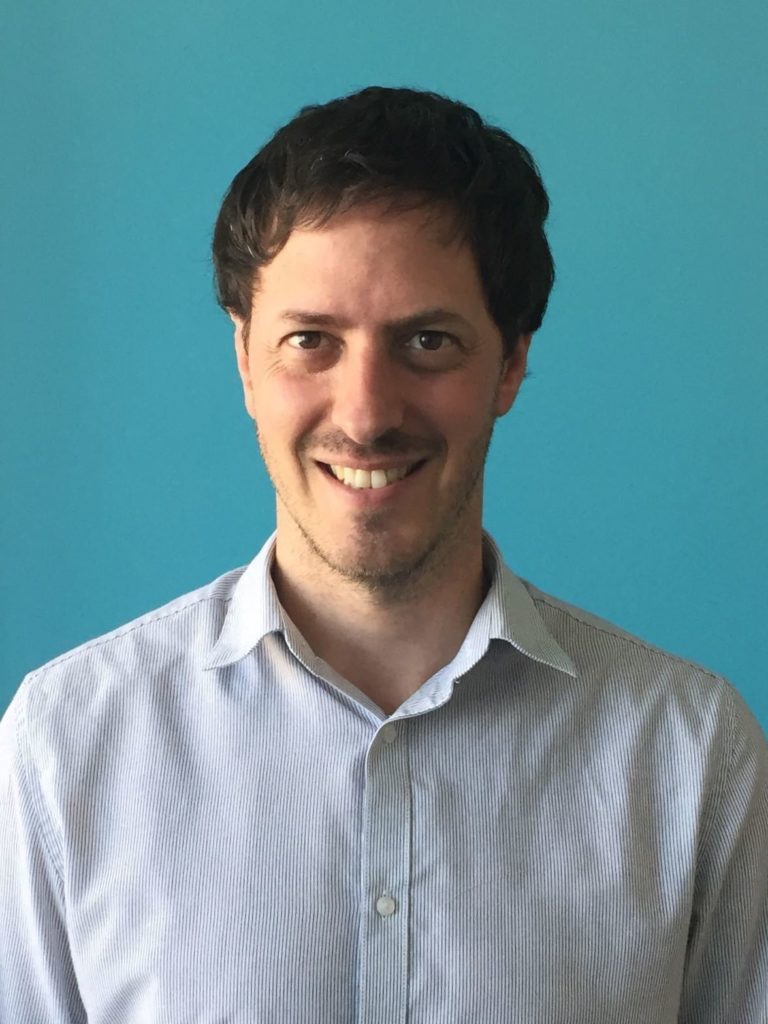 Juan Fuxman Bass, PhD, Assistant Professor of Biology, Boston University, Boston, USA
Juan Fuxman Bass, PhD, Assistant Professor of Biology, Boston University, Boston, USA
Dr. Fuxman Bass is an Assistant Professor in the Biology Department at Boston University. His overarching scientific goals are to elucidate the underlying principles governing cytokine regulation. In particular, his lab focuses on delineating the gene regulatory networks involved in cytokine transcription and identifying novel transcription factors involved in this process by integrating multiple omics approaches. In addition, his lab studies the role of virally-encoded transcription factors in modulating gene expression as a mechanism of viral immune evasion. His work has been funded by the Pew Charitable Trusts and by the National Institutes of Health through the K99/R00, R35, and U01 mechanisms.
Oral Presentation: Monday 21 October 2019 | 12:45 – 12:55, in the Session: Induction of immune tolerance –fact or fiction? in the Zeremoniensaal – MAPPING OF THE HUMAN CYTOKINE GENE REGULATORY NETWORK
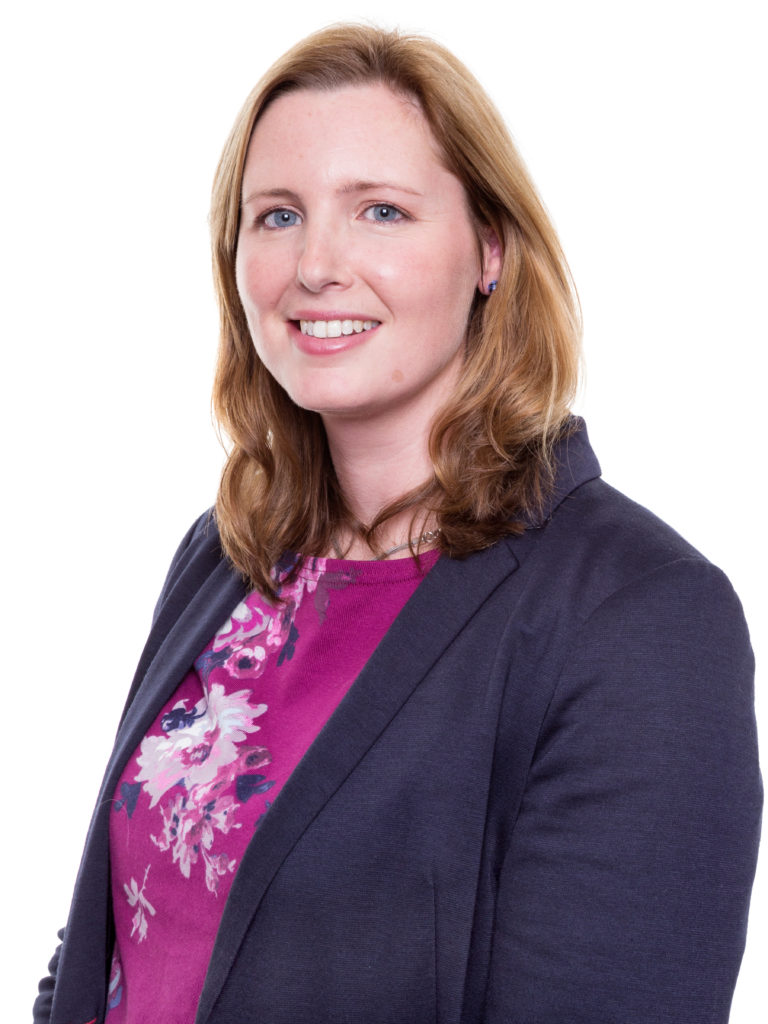 Sarah Doyle PhD, Assistant Professor in Immunology, Dept. Clinical Medicine, School of Medicine,
Sarah Doyle PhD, Assistant Professor in Immunology, Dept. Clinical Medicine, School of Medicine,
JF Coordinator for BSc in Human Health and Disease, TBSI, Head of Immunobiology Research Group, Trinity College Institute of Neuroscience (TCIN), Trinity College Dublin, Dublin, Ireland
Dr. Doyle’s research lab is focused on the impact of signalling downstream of the innate immune Toll/IL-1 Receptor (TIR)-super family in the maintenance of tissue homeostasis and the initiation of pathology. This family recognizes and responds to host derived danger signals and includes the IL-1 family cytokine receptors IL-1R and IL-18R. One aspect of her research is focused on studying how TIR-induced signaling regulates both inherited and acquired retinal degenerative disease, and in particular how IL-18 controls pathological neovascularisation in Age-related Macular Degeneration (AMD).
Oral Presentation: Wednesday 23 October 2019 | 12:40 – 12:50 , in the Session: Cytokine-mediated resident tissue destruction and fibrotic responses – in the Festsaal – INTERLEUKIN-18 ALTERS CELLULAR ORGANIZATION IN CHOROIDAL NEOVASCULAR LESIONS
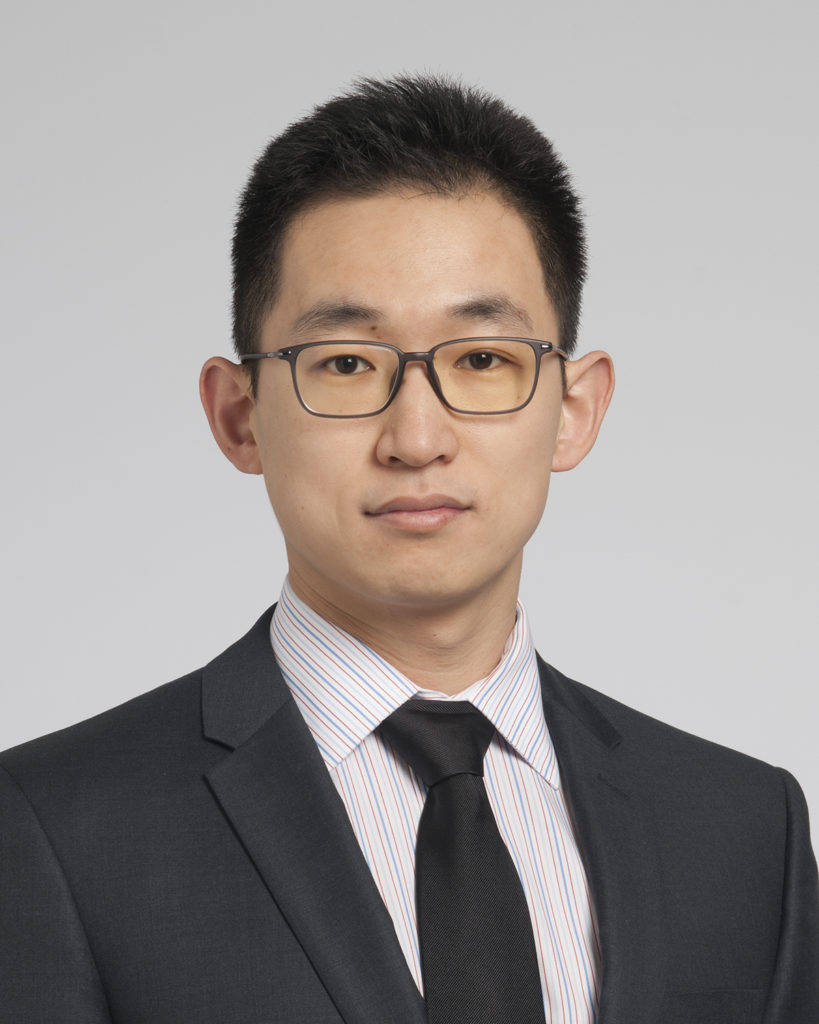 Yuxin Wang, PhD, Research Associate, Lerner Research Institute, Cleveland Clinic, Cleveland, USA
Yuxin Wang, PhD, Research Associate, Lerner Research Institute, Cleveland Clinic, Cleveland, USA
Yuxin Wang, PhD is a Research Associate in the Department of Cancer Biology at Lerner Research Institute, Cleveland Clinic. Dr. Wang received his doctoral degree from the joint Ph.D. program at the Lanzhou University in China and Lerner Research Institute Cleveland Clinic in the United States. He performed his postdoctoral training in the laboratory of George Stark at Lerner Research Institute. He has been studying on the crosstalk of cytokine response in cancer cells, and post-translational modification of transcription factors, with a specific focus on STAT2 and IRF9, which are the key factors in type-I-IFN response. His research recently discovered a novel T387 phosphorylation on STAT2, which negative regulates antiviral and anti-proliferative effect of Type-I IFNs. He also disclosed STAT2 collaborated with IRF9 drove a subset of NF-κB genes including IL6. This finding suggested a novel role of the STAT2/IRF9 complex, whose function in cancer cells is not yet well understood.
Oral Presentation: Wednesday 23 October 2019 | 10:15 – 10:25, in the Session: Type I interferons: biology and their role in disease in the Festsaal – PHOSPHORYLATION OF STAT2 ON T404 IS CRITICAL FOR INTERFERON-MEDIATED SIGNALING AND ANTIVIRAL DEFENSE
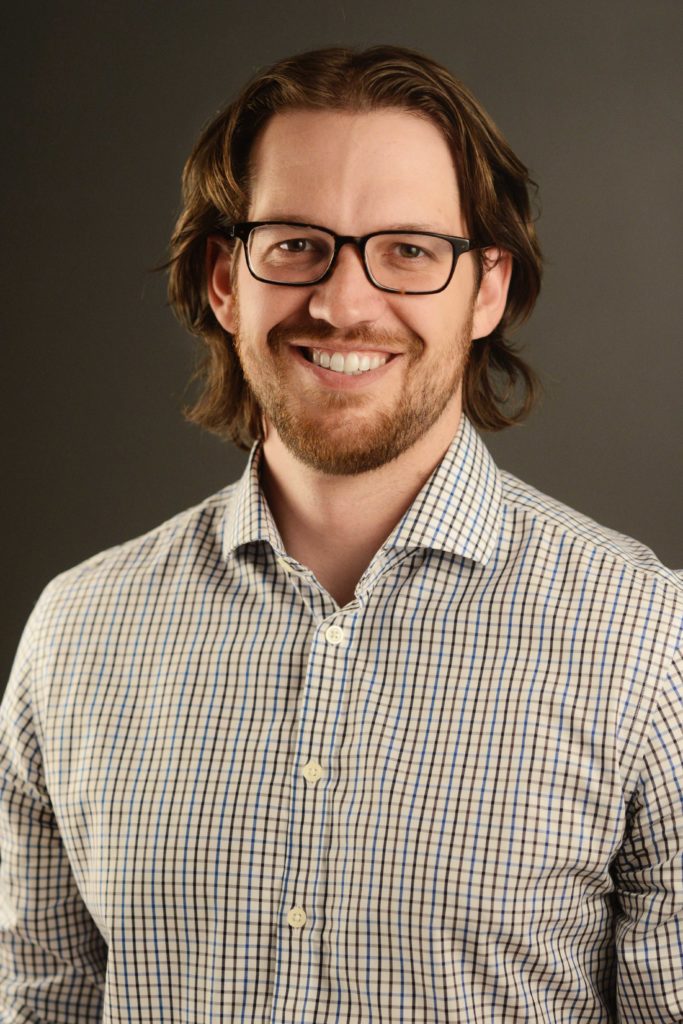 Ryan A. Langlois, PhD, Assistant Professor, Dept of Microbiology & Immunology, University of Minnesota, Minneapolis, USA
Ryan A. Langlois, PhD, Assistant Professor, Dept of Microbiology & Immunology, University of Minnesota, Minneapolis, USA
Ryan Langlois is an Assistant Professor in the Department of Microbiology and Immunology at the University of Minnesota. He earned his Ph.D. from the University of Iowa under Kevin Legge, Ph.D and completed his postdoctoral training in Ben tenOever’s lab at Mount Sinai in New York City. Through genetic engineering novel virus reporters and virus systems, the Langlois lab studies both innate and adaptive immune responses to virus infections, particularly influenza. The Langlois lab is particularly interested in early virus-host interactions mediated by interferon. Newer work is also underway to address how virus transmission within, and between, hosts is impacted by the innate immune system and how viruses evolve to overcome species barriers.
Oral Presentation: Wednesday 23 October 2019 | 10:35 – 10:45, in the Session: Type I interferons: biology and their role in disease in the Festsaal – MODEL FOR STUDYING INTERFERON-MEDIATED CONTROL OF INTER- AND INTRA-SPECIES VIRUS TRANSMISSION AND EVOLUTION
The 2019 Sidney & Joan Pestka Graduate & Post Graduate Award Winners
 Generously sponsored by PBL Assay Science.
Generously sponsored by PBL Assay Science.
POST-GRADUATE AWARD WINNER
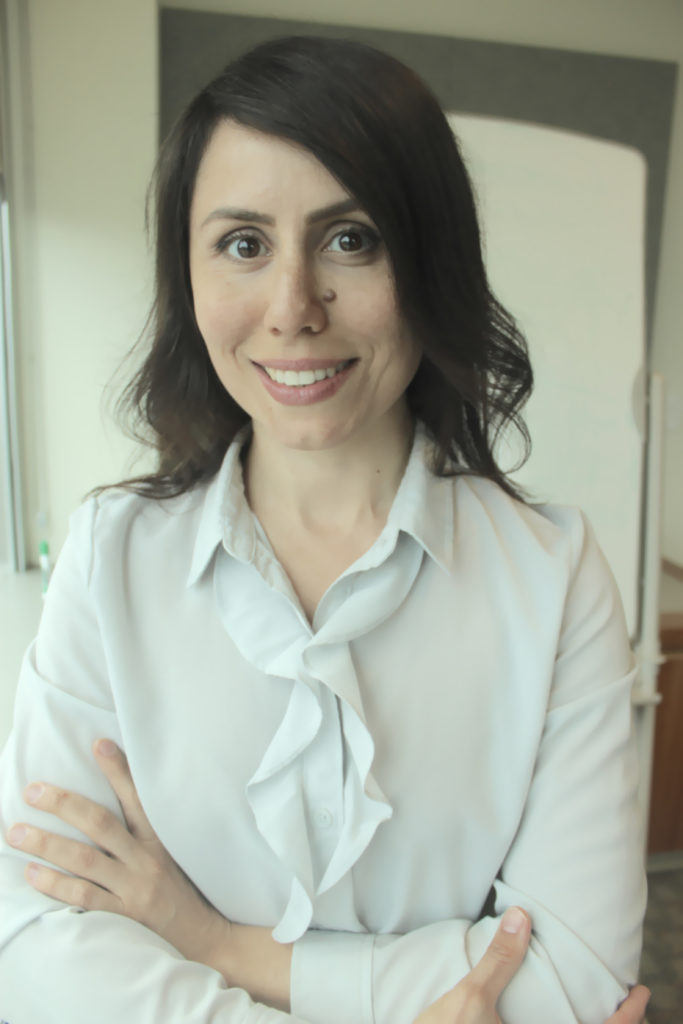 Billur Akkaya, MD, D.Phil, Research Fellow, Laboratory of Immune System Biology, National Institute of Allergy and Infectious Diseases, National Institutes of Health, Bethesda, USA
Billur Akkaya, MD, D.Phil, Research Fellow, Laboratory of Immune System Biology, National Institute of Allergy and Infectious Diseases, National Institutes of Health, Bethesda, USA
Dr. Billur Akkaya received her medical doctor degree at Hacettepe University, Turkey and completed her doctoral studies as a Felix Scholar at the Nuffield Department of Medicine Human Immunology Unit, University of Oxford, UK. During her graduate studies, she characterized the outcome of Programmed Death-1 (PD-1) stimulation by antibody superagonists in CD4+ and CD8+ T cells under co-supervision of Simon Davis and Richard Cornall. She then moved to the United States to perform her post-doctoral research on regulatory T cell biology in Ethan Shevach’s lab at National Institutes of Health. Her post-doctoral research revealed a novel mechanism by which regulatory T cells perform antigen-specific suppression. She completed her doctoral studies in Oxford as a University of Oxford Felix Scholar and was awarded 2019 American Association of Immunology Thermo Fisher Trainee Achievement Award, 2018 National Institutes of Health Fellows Award for Research Excellence, 2011 University of Oxford Christ Church College Hugh Pilkington Scholarship, and 2007 Hacettepe University Medical School Intern of the Year (Seref Zileli) Award. She currently works as a research fellow at the National Institute of Allergy and Infectious Diseases.
Oral Presentation: Monday 21 October 2019 | 14:05 – 14:15, in the Session: Oral Abstract Session with a focus on T Cells – in the Festsaal – TBET PROVIDES SURVIVAL ADVANTAGE TO TREGS DURING SYSTEMIC INTERFERON GAMMA DRIVEN IMMUNE RESPONSES
GRADUATE AWARD WINNER
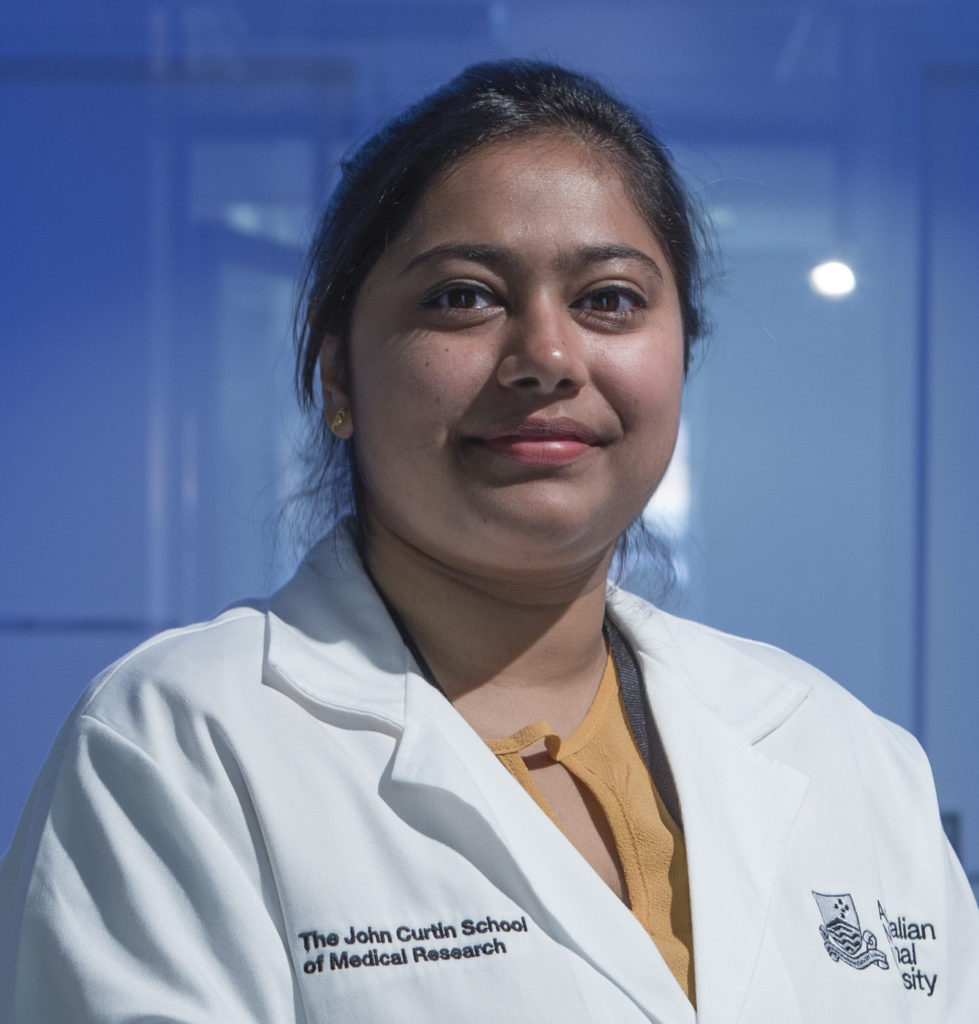
Anukriti Mathur, PhD candidate, Department of Immunology and Infectious Disease, The John Curtin School of Medical Research, Australian National University, Canberra, Australia
Anukriti is a third year PhD student at the Australian National University, Australia, under supervision of Dr Si Ming Man. Her PhD project focuses on understanding how the innate immune system triggers an inflammatory response following host recognition of infection. Her research identified a multi-subunit toxin, haemolysin BL, of the bacterial pathogen Bacillus cereus, driving activation of the NLRP3 inflammasome, leading to robust production of interleukin-1beta and interleukin-18.
Anukriti completed her Bachelor of Technology in Biotechnology at Amity University, India in 2010. She received a Master of Engineering in Biotechnology from the Birla Institute of Technology & Science, Pilani Campus, India in 2016. In 2015, she was awarded a Khorana fellowship by the Government of India which allowed her to conduct a research project at the Harvard Medical School, USA. Anukriti’s doctoral work has been recognised by a Gretel and Gordon Bootes Medical Research Foundation grant award, an Australian Society for Microbiology Nancy Millis student Award, and an International Association of Inflammation Societies Travel Award.
Oral Presentation: Wednesday 23 October 2019 | 12:40 – 12:50 , in the Session: Local and systemic effects of IL-1 family cytokines in disease – in the Zeremoniensaal – A MULTI-COMPONENT BACTERIAL TOXIN INCITES HOST INFLAMMATION VIA THE NLRP3 INFLAMMASOME
The 2019 Christina Fleischmann Award to Young Women Investigators
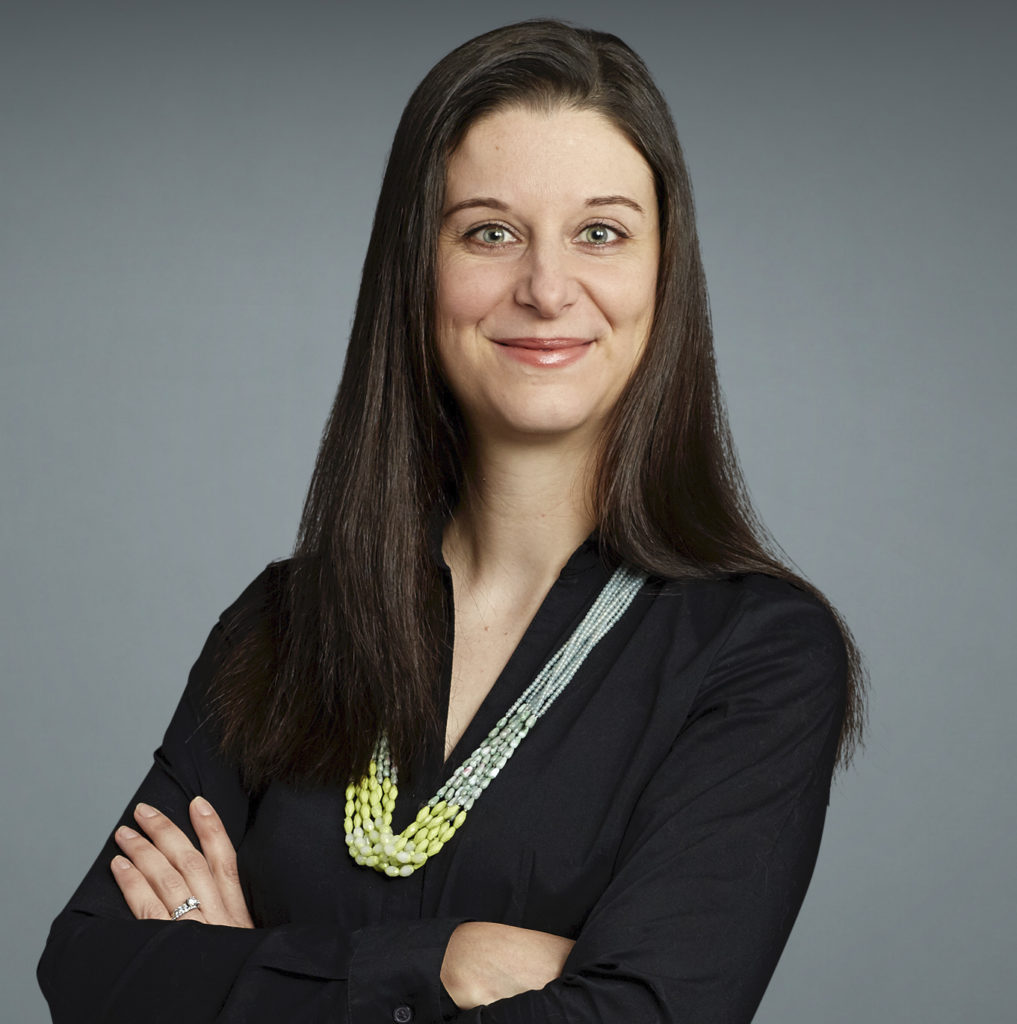 Meike Dittmann, PhD, Assistant Professor, Department of Microbiology, New York University School of Medicine, New York, NY, USA
Meike Dittmann, PhD, Assistant Professor, Department of Microbiology, New York University School of Medicine, New York, NY, USA
Dr. Meike Dittmann is an Assistant Professor of Microbiology at the New York University School of Medicine. She completed her doctoral training in Molecular Medicine and Virology at the University of Ulm, Germany, where, under Dr. Thomas Mertens, she examined drug resistance patterns in cytomegalovirus infections. As a postdoctoral fellow with Dr. Charles Rice at The Rockefeller University, she began her studies on innate immunity and the molecular function of interferon-stimulated genes. Her research revealed novel “effector-like” functions of pattern recognition receptors, and identified the first interferon-stimulated host effector that acts in the extracellular space and inhibits virus maturation. The Dittmann laboratory’s main goal is to answer the basic question of how interferons inhibit viruses.
Oral Presentation: Wednesday 23 October 2019 | 10:25 – 10:35 , in the Session: Type I interferons: biology and their role in disease in the Festsaal – THE ETS TRANSCRIPTION FACTOR ELF1 TRIGGERS A CRITICAL WAVE OF GENE EXPRESSION IN THE ANTIVIRAL RESPONSE TO TYPE I INTERFERON


